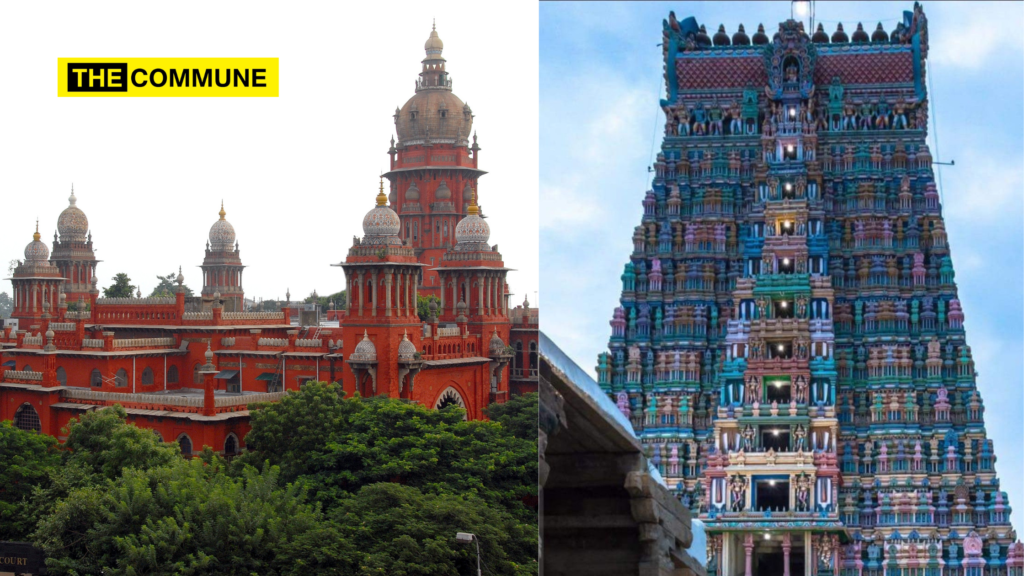On 5 February 2025, Tirumala Tirupati Devasthanams (TTD) took action against 18 employees for participating in non-Hindu religious activities while also taking part in TTD festivals and rituals. This move was backed by a legal precedent set in November 2023 when the Andhra Pradesh High Court upheld Rule 3, affirming that trust boards have the authority to mandate service conditions, including the requirement that employees follow the Hindu religion.
In this article, we will look at seven court rulings in India regarding the employment of Hindu or non-Hindu individuals in temples.
#1 SC Rules Against Caste And Religious Barriers In Temple Appointments
On 16 December 2024, the Supreme Court heard the case Vinod Kumar M.P. and Ors. v. The Malabar Devaswom Board & Ors. [Special Leave to Appeal (C) No(s). 29188/2024], filed against The Malabar Devaswom Board. The Supreme Court dismissed the Special Leave Petition challenging the Kerala High Court’s decision to set aside the appointment of non-hereditary trustees of Sree Vairamcode Bhagavathi Devaswom by the Malabar Devaswom Board. The Bench, comprising Justices M.M. Sundresh and Aravind Kumar, clarified that the ruling would not affect the petitioners’ future eligibility. The Court emphasized that caste, race, religion, or language cannot be barriers to appointments and that non-hereditary trustee selections must follow strict fairness principles. The petition alleged political favoritism in trustee appointments, which the Court addressed by reinforcing merit-based selection criteria.
#2 Madras HC Upholds Hindu-Only Hiring Policy in Temple-Run College
On 26 November 2024, the Madras High Court dismissed a petition challenging an employment notification by Arulmigu Kapaleeswarar Arts and Science College, a self-financing institution run by the Arulmigu Kapaleeswar Temple. The petitioner, A. Suhail, a Muslim, argued that restricting appointments to Hindus violated constitutional provisions on equal opportunity. However, Justice Vivek Kumar Singh ruled that the college, as a religious institution governed by the HR&CE Act, could require employees to be Hindu. The Court held that Article 16(5) permitted such restrictions and dismissed the petition for lacking merit.
#3 AP High Court Upholds Termination of Temple Employee for Religious Conversion
On 17 November 2024, the Andhra Pradesh High Court upheld the termination of an employee of Sri Bramarambha Mallikarjuna Swamy Varla Devasthanam after he converted to Christianity. Justice Harinath N ruled that the termination was valid under Article 16(5) of the Constitution and Rule 3 of the Andhra Pradesh Religious Institutions Service Rules, which require temple employees to be Hindu. The petitioner argued he had not converted, but the Court found evidence of his marriage in a church under Christian rites. The petition was dismissed, affirming the temple’s right to enforce religious requirements.
#4 SC Allows Govt Employees to Manage Temples in Absence of Trustees
On 5 October 2022, the Supreme Court upheld the Tamil Nadu government’s deputation of government employees to manage temples due to a lack of trustees. Justices D.Y. Chandrachud and Hima Kohli ruled that the move was in the temples’ best interest under the Tamil Nadu Hindu Religious and Charitable Endowments Act, 1959. Petitioner T.R. Ramesh argued that only trustees could appoint temple staff, but the Court found the deputation necessary to prevent administrative chaos. The Court ordered Tamil Nadu to provide data on temples without trustees and those managed by government officers.
#5 Hyderabad HC Stays Termination of Non-Hindu TTD Employees
On 22 February 2018, the Hyderabad High Court halted Tirumala Tirupati Devasthanams (TTD) from terminating 36 Muslim and Christian employees. Justices Ramesh Ranganathan and K. Vijaya Lakshmi questioned why authorities enforced Rule 9(6) after two decades, despite no mention during recruitment. The court criticized TTD’s sudden stance and stated it would review the constitutional validity of the rule. The bench emphasized that TTD runs institutions beyond temples and warned that executive officers responsible for hiring non-Hindus should also be held accountable.
#6 Madras HC Rules That Hindu Temples Can Choose Hindu-Owned Security Agencies
On 4 October 2011, the Madras High Court ruled that Hindu temples cannot be compelled to hire security agencies owned by non-Hindus. Justice K. Chandru dismissed a petition challenging a tender by Subhramaniya Swamy Temple, stating that temple management has the right to decide on sensitive matters like security. The court cited Section 10 of the Tamil Nadu Hindu Religious and Charitable Endowments Act, which mandates temple servants must be Hindus. It rejected claims of discrimination, emphasizing that religious reforms must come from within the faith, not through judicial intervention.
#7 Karnataka HC: No Blanket Ban on Non-Hindus in Endowment Offices
On 15 December 2020, the Karnataka High Court dismissed petitions seeking to bar non-Hindus from working under the Commissioner for Hindu Religious Institutions and Charitable Endowments. The Bench of Chief Justice Abhay Oka and Justice S. Vishwajith Shetty ruled that the 1997 Act does not prohibit non-Hindus from holding certain posts. It noted that roles like data entry or supervision are not directly linked to religious administration. The court also rejected objections to a Muslim officer’s name on a temple festival invite, stating that secular governance includes facilitating religious events across faiths.
Subscribe to our channels on Telegram, WhatsApp, and Instagram and get the best stories of the day delivered to you personally.

